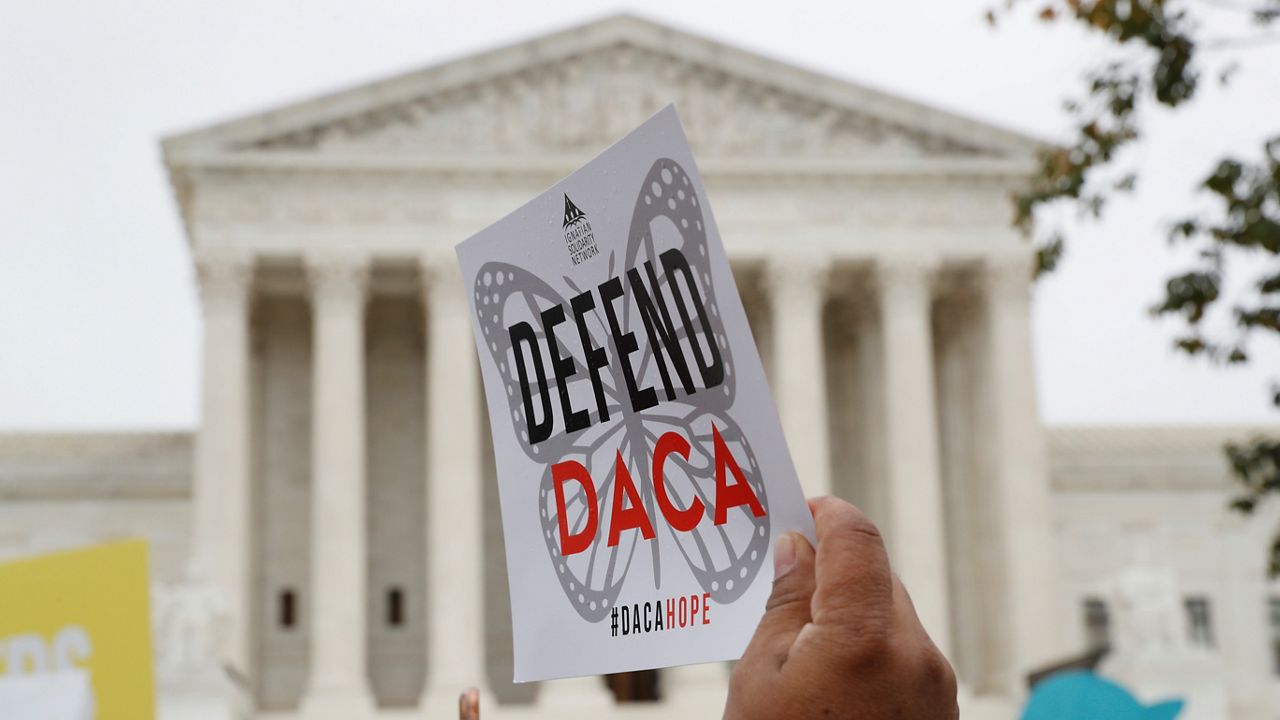TEXAS — Sandra Avalos had always set her mind on getting her degree and helping people.
For her, it was not about whether she would, but how would she accomplish it with a huge obstacle: being undocumented. She — like other minors who arrived to the U.S. undocumented — were limited in the jobs they would be able to obtain even if they attended college.
“We all knew whatever job our parents had that’s probably what we were going to end up having,” said Avalos.
In 2012, the Obama administration approved Deferred Action for Childhood Arrivals (DACA), which opened doors for many individuals like Avalos, who arrived to the U.S. prior to June 15, 2012 and were under 31.
“I knew at this point I’m about to transition, I’m about to get this degree and I know now I have the opportunity to actually practice it,” Avalos said.
According to U.S. Citizenship and Immigration Services, in the first nine months of the program, over 500,000 applications were received.
By September 2017, about 800,000 individuals were granted DACA. But shortly after, the Trump administration rescinded the program.
“Many people began to fear that the program was not going to continue, and it started a battle in the courts for the survival of DACA,” Haim Vasquez, an immigration attorney, said.
On the 10-year anniversary of DACA, the future is uncertain.
Vasquez explained that while the Southern District Court of Texas ruled not to rescind DACA, it only indicates that renewals and travel permits will be accepted.
Now, the Fifth Circuit of Appeals will decide if the creation of DACA was legal.
“The Fifth Circuit Court of Appeals can make a decision to simply determine that DACA was not a lawful program and end the program completely or reactivate the program and decide that the inception of the program was a legal process,” Vasquez said.
At the end of 2021 there were 611,470 DACA recipients, of which Texas beneficiaries make up 101,350.
Avalos said DACA not only enabled her to better provide for her family and achieve personal goals, but it empowered her.
“DACA gave me for the first time, I was able to say, 'undocumented, unafraid.' Sin papeles, sin meido,” Avalos said.
Through DACA’s advance parole permission, she has been able to travel throughout the U.S. to advocate for immigration reform.
“We need a permanent solution now,” Avalos said.
On the anniversary of DACA, she traveled to Washington D.C. to speak to senators.
“I am here talking to folks that applied and paid the $495 and just as they were able to receive their work authorization card, DACA was put on hold for initial applicants,” Avalos said.
Although the future is uncertain, Avalos will be able to visit her family in Mexico for the first time after 26 years. She will be making the trip this summer.



